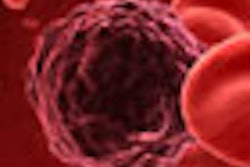A team of researchers at the University of California, Los Angeles (UCLA) School of Dentistry, has been awarded a $3.8 million research grant to develop a salivary-biomarker approach for identifying individuals at risk of developing post-traumatic stress disorder (PTSD) and depression following a traumatic event.
Cofunded by the National Institute of Dental and Craniofacial Research and the National Institutes of Health's Office of Behavioral and Social Sciences Research, the five-year study seeks to develop a panel of salivary stress biomarkers that will allow early recognition of emerging mental health disorders and permit pre-emptive psychological care, according to the university.
"Current assessment strategies rely on subjective reports of symptoms by trauma survivors," stated lead researcher Vivek Shetty, DDS, DMD, in a press release. "The symptom-based nature of psychological assessments presents significant challenges for trauma care specialists attempting to differentiate between temporary distress and the early stages of mental health illnesses."
In addition, the time and resource constraints of the acute care setting do not allow for the structured screening required for psychological assessments, he noted.
"If successful, our salivary stress biomarker panel will allow the development of practical decision-aid tools to complement subjective clinical evaluation and allow timely referrals of 'at-risk' individuals," he said.
For the study, Dr. Shetty and his colleagues will repeatedly conduct psychological assessments and obtain corresponding saliva samples over a six-month period among a group of 600 individuals who have recently experienced a serious physical injury or sexual assault.
The team will use sophisticated analytical techniques to determine the levels of the individual salivary biomarkers at different points over the six months and compare the biomarker patterns of individuals who subsequently develop PTSD and/or depression with those who do not.
The association of the biomarkers with mental disease would be used to develop mathematical models that utilize early stress biomarker levels to predict later development of traumatic psychopathology.
"Utilizing easily accessible saliva for evaluating stress reactions would allow front-line care providers to become more involved and proactive in the management of post-traumatic stress disorders, moving the focus away from treatment of unmanageable, late-stage conditions toward early identification and targeted interventions of vulnerable individuals," Dr. Shetty said.
The current research study builds on Dr. Shetty's ongoing development of mobile devices for point-of-care assessment and management of PTSD using salivary diagnostics.



















